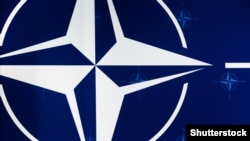In his August 24 comments, Komoyedov does not specify which “aggressive” NATO policies are not supported by “a majority of people in Europe and the United States,” or explain how analyzing critical statements by opposition factions in the West would reveal this lack of support.
It is true that polling data shows wariness among NATO members about a military confrontation with Russia. A Pew Research Center survey published in spring 2015 found that around 50 percent or fewer respondents in six of the eight NATO nations surveyed supported using their countries’ military forces to defend a NATO ally neighboring Russia in the event that “Russia got into a serious military conflict” with that nation.
But available polls don't specifically ask about NATO’s "aggressive policies," perhaps because such a question would reflect a value judgment.
Overall attitudes toward NATO remain largely positive among member nations, according to a spring 2016 Pew Center survey. A median of 57 percent of respondents across the 11 nations surveyed expressed a favorable opinion of NATO, while a median of 27 percent voiced an unfavorable view, according to the poll. The survey was published two years after Russia’s seizure and annexation of Ukraine’s Crimea territory and the start of the subsequent war between Kyiv’s forces and Russia-backed separatists in the east of the country. NATO has been a staunch supporter of Kyiv and a fierce critic of Moscow in the conflict, which has prompted the alliance to endorse new major troop deployments in Eastern Europe in response to Russia’s actions in Ukraine.
Komoyedov, a former commander of Russia’s Black Sea Fleet, was responding to remarks by U.S. General Joe Dunford, Chairman of the Joint Chiefs of Staff, who on August 23 accused Russia of seeking to “undermine” NATO with its actions in Eastern Europe and support for Syrian President Bashar al-Assad.
